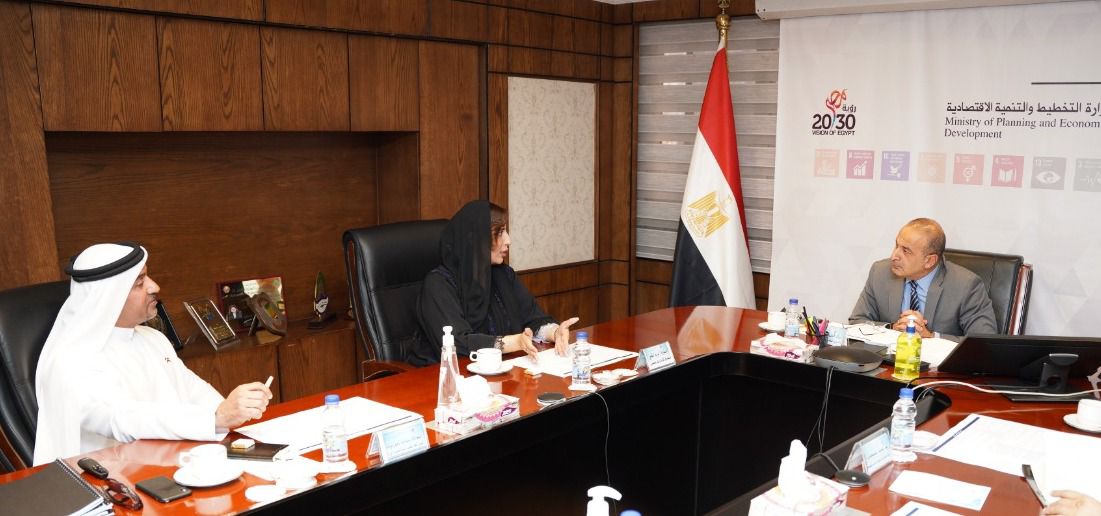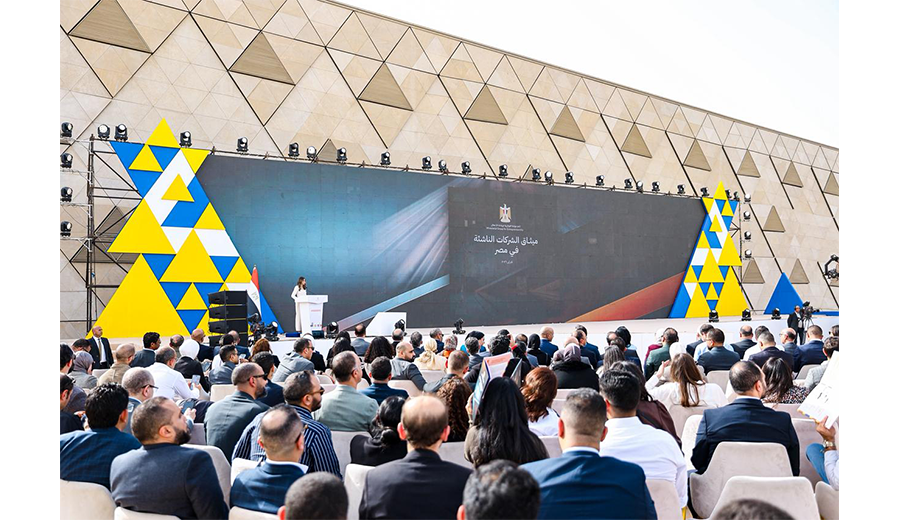Egypt, UAE governments discuss strengthening cooperation in government modernization & service development

16 September 2022
The governments of the Arab Republic of Egypt and the United Arab Emirates held a coordination meeting to discuss the development of cooperation between the Ministry of Planning and Economic Development in Egypt and the government of the United Arab Emirates, the achievements of the strategic partnership in government modernization during the last period.
The meeting was chaired by Dr. Ahmed Kamali, Deputy Minister of Planning and Economic Development, in the presence of Eng. Khaled Mostafa, Permanent Undersecretary of the Ministry and General Supervisor of the Egypt Award for Government Excellence, and Eng. Ashraf Abdel Hafeez, Assistant Minister of Planning and Economic Development for Digital Transformation.
On the Emirati side, H.E. Abdullah Nasser Lootah, Director General of the Prime Minister's Office at the Ministry of Cabinet Affairs, and HE Maryam Al Kaabi, UAE Ambassador to Egypt.
Dr. Ahmed Kamali stressed the depth of relations between Egypt and the UAE in general and the specificity of the relationship between the Ministry of Planning and the UAE government, and the close cooperation in the development file and raising the capabilities of the government apparatus.
Kamali stressed that the Egyptian government is keen to benefit from the capabilities and successful experiences in the UAE, as well as the accumulated experiences of the Egyptian government apparatus.
Kamali praised what was achieved in the Egypt Award for Government Excellence as one of the most prominent models of partnership between the ministry and the UAE government.
His Excellency Abdullah Nasser Lootah, Director-General of the Cabinet Office at the Ministry of Cabinet Affairs, stressed that the leadership of the UAE adopts clear directions based on solid foundations of cooperation and partnerships aimed at creating and designing a better future for future generations.
Abdullah Lootah said that the UAE government is keen to strengthen partnership frameworks with the government of the sisterly Arab Republic of Egypt in the areas of government modernization.
Lootah praised the positive partnership of the government of the Arab Republic of Egypt in consolidating an Arab model of cooperation and exchange of experiences.
He stressed the importance of expanding the partnership and moving it to broader horizons to include various fields related to government work.
Partnership Achievements
Eng. Khaled Mostafa reviewed the most important achievements during the last period in the partnership file with the UAE, on top of which was the completion of the Egypt Services Center in Aswan, in addition to the implementation of 3 cycles of the Egypt Award for Government Excellence.
Mustafa stressed that what distinguishes cooperation with the UAE government is the full commitment to reach high levels of implementation and achieve a clear impact from the programs that are being implemented.
Mustafa referred to the study of several projects and programs to expand cooperation with the UAE government, whose implementation will begin at the beginning of next year.
The two sides discussed some issues related to the strategic partnership in government modernization, and the strengthening of cooperation in the development of government service centers, especially the Egypt Services Center, which will be opened soon in Aswan Governorate, and the agreed plan to be implemented in some governorates, including South Sinai, Cairo, and Giza.









